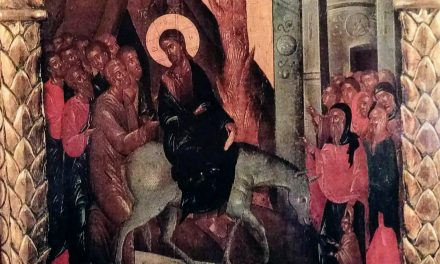
Readings for the Fifth Sunday of Ordinary Time can be found here.
There is a certain desperation that we can sense in this gospel reading from Luke. Simon, James, and John have been fishing all night and caught nothing. Yet at the instruction of Jesus, the fishermen go out again and fill their boats with fish. The response to this miraculous catch also indicates a sort of desperation, when Simon tells Jesus to depart from him as he is a sinful man.
We may not be unsuccessful fishermen, but no doubt we have also shared in this frustration of working hard with no results. We have the experience of being limited human beings, with limited human perspectives, and not achieving the solution to our problems, even when we think we understand what is happening.
In fact, the field of Catholic moral theology can be very like this also. We concern ourselves with the horizontal plane, pursuing justice and mercy in so many troubled human relationships. And, whatever inroads and improvements we may make in our causes, we can still look around and notice that, while the nets need to be cleaned and have caught something from the dregs of the lake, ultimately we may not have the great catch we want. Each day brings fresh news of injustices and problems around the world.
However, we have reason to abandon desperation and embrace hope. Ultimately, our task as Catholics and as moral theologians is not to solve the world’s problems, but to listen to Jesus, to do what he says, and to praise God better. Our psalm response today states: “In the sight of the angels, I will sing your praises, Lord” (Ps. 138:1c). This is our most important task, that cannot be pushed aside when we worry about our personal problems or the problems of the world. Learning to praise God better is always the first task of Catholic moral theology; without the acknowledgment and concern for a relationship with God, our nets will always be empty and desperation will pervade our life and works.
We know that the key for Simon Peter was his willingness to do what Jesus said: first, to go back out on the lake and put down his nets again. And second, to leave everything and follow Jesus when he was told he would be catching men instead of fish. We find this same willingness to respond to a call in the first reading from the prophet Isaiah. In an otherwise desperate situation, Isaiah finds himself face to face with God, and after the seraphim has made him clean, purging him from sin, Isaiah’s immediate response is to beg God to send him to do God’s will.
Both Simon and Isaiah demonstrate a humility that precedes their willingness. They knew the frustration of their own situations, the personal and social experience of failure, and they found the answer in relation to God’s call. This humility is related to a point Paul makes in the second reading from the first letter to the Corinthians. Paul recognizes that he is part of a tradition, merely handing on what he received, namely, the gospel of Jesus’s life, death, and resurrection.
This is our first task, to praise God better. In our humility – the knowledge of our own sinfulness and desperation – we look to God, with a willingness to respond to Jesus’s call, despite the difficulty. As we undertake this mission, we may realize the difference we are making in the lives of others. And yet, ultimately our success is not always visible to human eye or measurable by human standards.





Trackbacks/Pingbacks